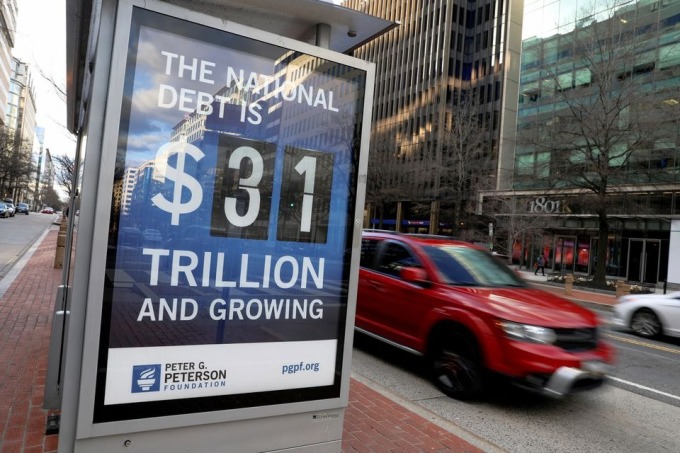Experts say US businesses need to assess their exposure to the government , increase cash holdings and sell Treasury bonds.
US officials have yet to reach an agreement on the debt ceiling, bringing the country closer to default. Business owners are in a wait-and-see mode, preparing for possible recessions and layoffs if the default continues.
While some believe the US cannot default, the Congressional Budget Office (CBO) said earlier this month that the likelihood of the government not being able to meet all its payment obligations in the first two weeks of June is “very high.” US Treasury Secretary Janet Yellen has warned that the agency could run out of money as early as early next month.
"We all hope the US does not default. But hope is not a backup plan. Companies need to prepare themselves," Joshua White, a finance professor at Vanderbilt School of Management, recommended.
Assess the level of involvement with the government
Some businesses may not be immediately affected by the risk of default. But companies with government contracts could find themselves behind on payments as the US Treasury runs out of money.
In the event of default, they may have to wait several weeks, during which time landlords and suppliers will have to find ways to be more flexible, said Harry Mamaysky, a professor at Columbia Business School.
Companies that rely on government payments should prepare for delays. “You need to have contingency plans in place,” he said.

A sign announcing that the US debt had hit the $31.4 trillion ceiling in January. Photo: Reuters
Businesses in the military and healthcare sectors could be hit hardest. Private companies, such as technology firms, could also be affected.
White advises companies in these industries to hold regular meetings to plan for missed payments. JPMorgan Chase CEO Jamie Dimon told Bloomberg in early May that the bank is holding weekly meetings to prepare for the possibility of default.
“At some point, the government will figure this out. But until then, companies need to know if they can survive? For how long? And how difficult it will be,” White said.
Hold more cash
Even businesses that don’t directly receive payments from the government should have a plan, White says. If your customers or suppliers don’t get paid, they’re likely to cut back on spending on your products.
White said that in this situation, small businesses do not need to hold weekly meetings. Instead, they should keep more cash on hand, and diversify their currency reserves in case the dollar falls.
A government default could push up interest rates, making borrowing more expensive. “A lot of cash would be helpful,” White said. Companies could do this by putting big projects on hold.
In addition, defaults will make it difficult for businesses to access credit, said Kent Smetters, a professor of economics at Walton. Small and medium-sized businesses often have to borrow to pay suppliers when they are short of cash.
"But if I were a bank, I would reduce lending. Because some of the deposits have been invested in treasury bonds. The government may not be able to repay the bonds on time if it defaults," Smetters explained.
Sell off government bonds
As banks become more cautious with their holdings of government bonds, businesses need to be more cautious. If you have bonds maturing in early or mid-June, “and you need to get that money to pay your suppliers, you could be stuck for a week or two while Congress tries to raise the debt ceiling,” Mamaysky said.
In this situation, he advises companies to consider selling short-term government bonds, such as bonds that mature within a year.
Cut spending to essential levels
Cynthia Franklin, director of entrepreneurship at New York University’s WR Berkley Innovation Labs, works with small businesses and startups. Her advice to existing businesses is the same as what she would give to startups.
"If the US government defaults, borrowing costs will rise, consumer confidence will fall. Businesses will have to tighten their belts," she said.
However, she said companies need to be “flexible and adaptive,” diversifying their customer base so they don’t become dependent on one source of revenue. They also need to increase operational efficiency so they don’t spend more than they need.
“Not just during recessions or economic uncertainty, businesses need to think about spending only on what is necessary at all times,” she concludes.
Ha Thu (according to CNN)
Source link






























































































![[Infographic] In 2025, 47 products will achieve national OCOP](https://vphoto.vietnam.vn/thumb/402x226/vietnam/resource/IMAGE/2025/7/16/5d672398b0744db3ab920e05db8e5b7d)





Comment (0)